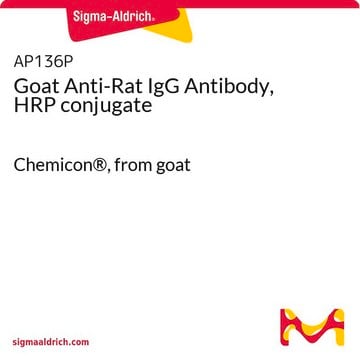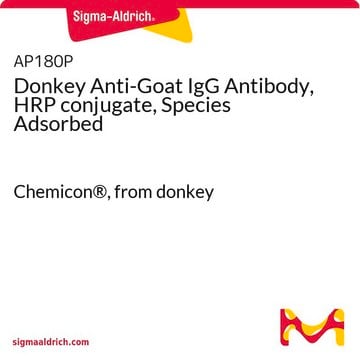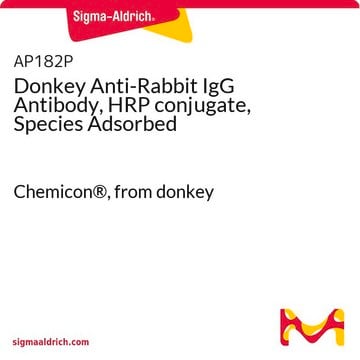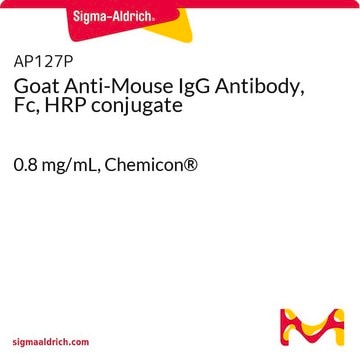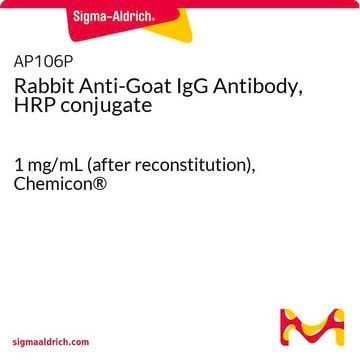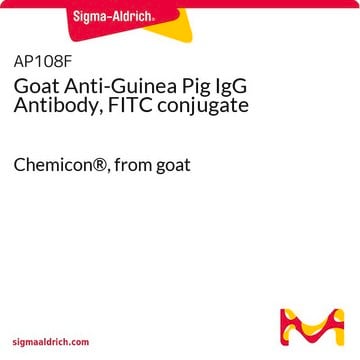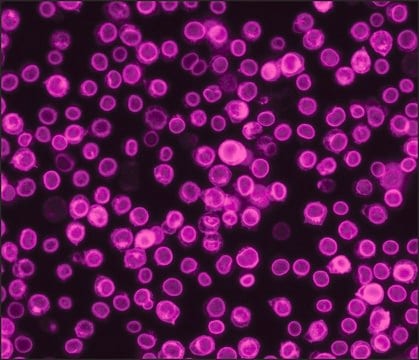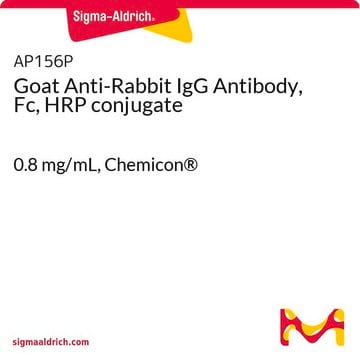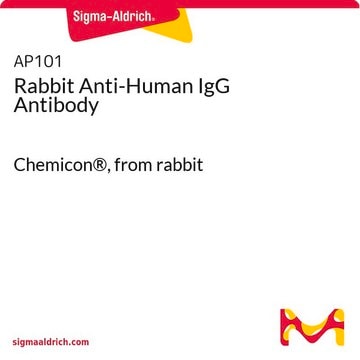AP183P
Goat Anti-Rat IgG Antibody, HRP conjugate, Species Adsorbed
0.8 mg/mL, Chemicon®
Synonym(s):
Goat IgG Antibody
About This Item
Recommended Products
biological source
goat
Quality Level
conjugate
peroxidase conjugate
antibody form
F(ab′)2 fragment of affinity isolated antibody
antibody product type
secondary antibodies
clone
polyclonal
species reactivity
rat
manufacturer/tradename
Chemicon®
concentration
0.8 mg/mL
technique(s)
ELISA: suitable
western blot: suitable
shipped in
wet ice
target post-translational modification
unmodified
Related Categories
Application
Immunohistochemistry: 1:500-1:5,000.
Optimal working dilutions must be determined by end user.
Secondary & Control Antibodies
Secondary Antibodies Adsorbed for Dual Labeling
Linkage
Physical form
RECONSTITUTION:
Reconstitute with 500 μL of sterile distilled water.
Storage and Stability
WARNING:Use of sodium azide as a preservative will substantially inhibit the enzyme activity of HRP.
Legal Information
Disclaimer
Not finding the right product?
Try our Product Selector Tool.
Storage Class Code
13 - Non Combustible Solids
WGK
WGK 3
Flash Point(F)
Not applicable
Flash Point(C)
Not applicable
Certificates of Analysis (COA)
Search for Certificates of Analysis (COA) by entering the products Lot/Batch Number. Lot and Batch Numbers can be found on a product’s label following the words ‘Lot’ or ‘Batch’.
Already Own This Product?
Find documentation for the products that you have recently purchased in the Document Library.
Our team of scientists has experience in all areas of research including Life Science, Material Science, Chemical Synthesis, Chromatography, Analytical and many others.
Contact Technical Service